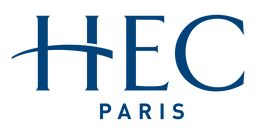PROGRAM STRUCTURE
INTRODUCTION
Our program aims to fulfill two objectives within a short period of time: lay the necessary foundations for any career in finance and provide in-depth knowledge in each student’s field of specialization.
We achieve this goal by leveraging on the specific knowledge and experience students have acquired before joining HEC Paris:
- Business track students: have already taken at least introductory level courses in financial accounting, corporate finance, financial markets, derivatives and statistics in a Tier-1 international business school or university. They frequently have had first internships in banking or consulting and are looking for an advanced set of tools to jump-start their career.
- Accelerated track students: have received first class education in a highly quantitative field (maths, physics, engineering, econometrics...) and wish to switch their field to finance. They may or may not have taken some courses in finance and they may or may not have had a first internship in banking or consulting.
Business and accelerated tracks mainly differ in courses taught during the Fall term.
Business track students follow the same courses as the “Majeure Finance” students of the HEC Master in Management program, starting all courses at an advanced level and getting a first opportunity to specialize through “block electives”.
Accelerated track students start all finance courses at an introductory level. However, they go through an intensive Fall term where courses are taught making full use of their strong quantitative skills.
Business track and accelerated track students have access to the same pool of electives in the Spring term and have the same career opportunities at the end of the program. In particular, they both have access to either a specialization in Corporate Finance or a specialization in Capital Markets (Fall term).
COURSE PORTFOLIO
While the first semester is dedicated to Core and Advanced Core Courses, the second semester allows students to choose from more than 40 electives: concentration electives related to their chosen specialization, as well as free electives.
Indeed, students are invited to select one specialization as soon as they apply for the MSc International Finance program. Their choice is not binding as they will have the opportunity to confirm or change their specialization in the first semester of the program.
Two specializations are available:
- Corporate Finance specialization: designed for students interested in careers in M&A, private equity, consulting, large multinational companies, etc.;
- Capital Markets specialization: ideal for students interested in careers in trading, structuring, market analysis, but also wealth and asset management.
CORE COURSES
- Behavioral and Sustainable Finance
- Corporate Valuation
- Securities Market
- Financial Statement Analysis
- Introduction to Finance
- Corporate Finance
- Financial Accounting and Reporting
- International Macroeconomic
- Asset Management
- Economics of Financial Regulation
- Soft skills seminar
- Ethics seminar
- Probability and Statistics Refresher
- Empirical Methods in Finance
ADVANCED CORE COURSES
- Securities Markets
- International Finance
- Capital Markets Specialization Courses
- Financial engineering
- Quantitative asset management
- Corporate Finance Specialization Courses
- Corporate restructuring
- Derivatives
CONCENTRATION ELECTIVES
Corporate investment & financing policy:
- Advanced financial accounting
- Financing decisions of firms
- Financial solutions for corporates
- Equity capital markets
- Entrepreneurial finance
Corporate restructuring:
- Mergers & acquisitions
- LBO structuring and modeling in practice
- Real options
- Private equity
- Value / distressed investing
Corporate strategy:
- Corporate Strategy & Financial institutions
- Topics in Valuation
- Behavioral strategy
- Financial dimensions of strategic decisions
- Strategy for International Expansion
Financial Engineering:
- Exotic Products and Structuring
- Stochastic processes
- Modeling techniques for financial engineering
- FX derivatives trading
- Origination of structured products
Data and Science:
- Introduction to Applications of Data Science to Management
- Data Analysis in Finance
- Technology Regulation in the Financial Sector
- Economic Value of Data
- Blockchain
FREE ELECTIVES
- Credit risk & turnaround of distressed companies
- Energy and finance
- Financial modeling
- Infrastructure and real assets
- Corporate Finance Live
- Real estate foundations
- Numerical analysis
- Quantitative asset management
- Financial dimension of strategic decisions
- Financing decisions of the firms
- Post-Merger Integration
- Startup Valuation and financing
- Microeconomics of crisis Economies
- Energy Markets
- Bond portfolio management
- Sustainable & responsible investment
- Alternative investments

